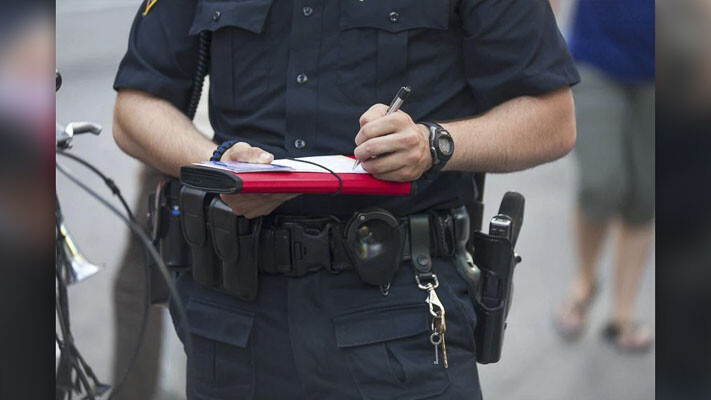
In 2020 Washington collected more than $234.7 million in fines and fees, meaning state and local governments collected $30.47 in fines and fees for every resident of the Evergreen State
Brett Davis
The Center Square Washington
Washington is the ninth worst state in the nation in terms of fines and fees collected per capita in 2020, according to a new study released Tuesday by the Reason Foundation.
The Los Angeles-based libertarian think tank found that in 2020 Washington collected more than $234.7 million in fines and fees, meaning state and local governments collected $30.47 in fines and fees for every resident of the Evergreen State.
The national average, per the study, is $27 per resident in fines and fees collected in 2020.
Data for the study was obtained from the Census Bureau’s Annual Survey of State and Local Government Finances.
In a data visualization piece accompanying the study, Reason showed that local governments across the United States in 2020 collected just under $9 billion in fines and fees.
Vittorio Nastasi, director of criminal justice policy at the Reason Foundation and co-author of the study, spoke to the Evergreen State’s placement on the list.
“Governments in Washington state rank in the top 10 in the nation in the collection of fines and fees, both in raw numbers and per capita,” he explained in an email to The Center Square. “Washington, like far too many states, is using hundreds of millions of dollars in fines and fees as revenue generators that fund and grow government. This taxation by citation is unfair, especially to low-income Washingtonians, and creates troubling conflicts of interest in the criminal justice and court system.”
This is nothing new for Washington, Nastasi pointed out.
“Per capita local fine and fee revenue has increased slightly in Washington over the past five years,” he explained. “This is a persistent problem in Washington, not just a momentary blip.
Nastasi is not a fan state and local governments relying on their powers to enforce traffic laws and other ordinances to raise revenue rather than to protect the public.
“The state and local governments across Washington should be looking to implement reforms that eliminate taxation by citation, increase accountability, and promote fairness within the justice system,” he said. “Courts and law enforcement agencies, especially, should not be funded by fees and fines charged to citizens.”
Nastasi expanded on his opposition to fines and fees as a policy tool.
“From suspending driver’s licenses of low-income workers who simply don’t have money to pay fines to setting up perverse incentives for law enforcement and courts to increase the number of fines and fees so they can fund more things, the troubling fines and fees levied by state and local governments have devastating consequences on low-income individuals, racial minority groups, young people, and their families across Washington state,” he said. “Conservatives and progressives should be able to agree to some basic reforms based on justice and individual liberty.”
The 10 states that collect the highest fines and fees per capita:
1. New York ($69.60)
2. Illinois ($50.57)
3. Texas ($40.37)
4. Georgia ($35.16)
5. Wyoming ($33.43)
6. California ($31.87)
7. Louisiana ($31.49)
8. Arkansas ($30.47)
9. Washington ($30.47)
10. New Jersey
The 10 states that collect the lowest fines and fees per capita:
50. Connecticut ($2.00)
49. Nebraska ($2.02)
48. Kentucky ($2.50)
47. Maine ($2.89)
46. New Hampshire ($2.94)
45. Hawaii, ($3.49)
44. New Mexico ($4.31)
43. Vermont ($4.69)
42. North Carolina ($7.12)
41. Minnesota ($7.89)
Also read:
- Silent Majority Foundation to argue to dissolve the stay in Washington v. Gators Guns caseOn April 8, 2024, Silent Majority Foundation secured a significant win for the citizens in Washington v. Gators Guns when it obtained a statewide Injunction barring the enforcement of ESSB5078 (Washington’s ban on “large-capacity magazines”).
- Opinion: Student loan forgiveness? Bring it onClark County resident and long-time journalist Marvin Case shares his thoughts on the president’s attempt to seek a legal way to reduce or dismiss student college loan debts.
- Washington law enforcement org weighs in on upcoming changes to pursuit lawIn less than two months, law enforcement agencies across Washington state will have a less restrictive set of rules when it comes to vehicle pursuits of fleeing suspects.
- Three new common-sense ‘initiatives to the people’ inspire a renewed sense of optimism and unityWith the Republican State Convention in Spokane fast approaching, three new common-sense initiatives to fix what’s broken in Washington are inspiring a renewed sense of optimism among conservatives and Washingtonians of all political leanings.
- Hundreds of lowland lakes around Washington open for fishing on April 27Anglers can look forward to trout fishing in hundreds of lowland lakes throughout the state beginning April 27.
- Volcanoes name director of youth basketball, schedule camps this summerPorter Troupe, a former player for the Vancouver Volcanoes and now the team’s associate head coach, will lead the organization’s youth basketball program, and the Volcanoes have announced a series of camps this summer, including one in a partnership with Nike.
- Clark County seeks volunteers for the Historic Preservation CommissionClark County is seeking applicants for two seats on the Clark County Historic Preservation Commission.











